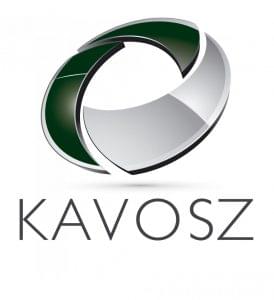Magazine: Hungarian retail performed better than the EU’s average
Trade magazin interviewed László Krisán, CEO of KAVOSZ Zrt. – a company working in support of entrepreneurial development.

![]() How does the concentration process of retail trade influence the operations of small and medium-sized enterprises?
How does the concentration process of retail trade influence the operations of small and medium-sized enterprises?

László Krisán
CEO
KAVOSZ
– One of the pillars of economic growth is retail trade. In comparison with 2010, sales in the sector jumped almost 40 percent – way above the EU’s average. In Hungary there are about 400,000 people working in retail and the sector is responsible for 10 percent of the GDP. Sales were worth more than HUF 11,000 billion last year, and 45 percent of this was realised by FMCG stores. Then number of retail outlets has been decreasing in the last 5 years, mainly non-food stores went out of business. At the end of 2017 there were less than 125,000 shops in Hungary. At least 16,000 people lost their job in the sector.
![]() What major trends do you see in the world of small and medium-sized businesses?
What major trends do you see in the world of small and medium-sized businesses?
– In Hungary most of the 700,000 small and medium-sized enterprises are family businesses. SMEs are a stronghold of the Hungarian economy. Nine from 10 enterprises are SMEs and 2 from 3 jobs are created by SMEs. A national capital investment programme with the right strategy would be useful for small and medium-sized businesses, so that the sector would make some progress.
![]() What is the essence of the Széchenyi Card programme and what is its objective?
What is the essence of the Széchenyi Card programme and what is its objective?
– Still much fewer nano-, micro-, small- and medium-sized enterprises are applying for state-subsidised loans than the number of businesses that actually need it. In the Széchenyi Card programme enterprises can take out loans up to HUF 100 million. The programme is basically a cooperation of the state, credit institutions, guarantee institutions, interest representing organisations and public bodies, which helps enterprises to get simple access to loans with terms that are favourable to them. There is great potential in activating capital that is available in the market, and the focus should be on new-concept capital programmes. //
Related news
EU Commissioner: New regulation strengthens protection for farmers and smaller suppliers in the food chain
🎧 Hallgasd a cikket: Lejátszás Szünet Folytatás Leállítás Nyelv: Auto…
Read more >AI in small businesses: lack of guidance slows down progress
🎧 Hallgasd a cikket: Lejátszás Szünet Folytatás Leállítás Nyelv: Auto…
Read more >Related news
Protein, gut health and mental wellbeing – these trends will shape global food innovation in 2026
🎧 Hallgasd a cikket: Lejátszás Szünet Folytatás Leállítás Nyelv: Auto…
Read more >








